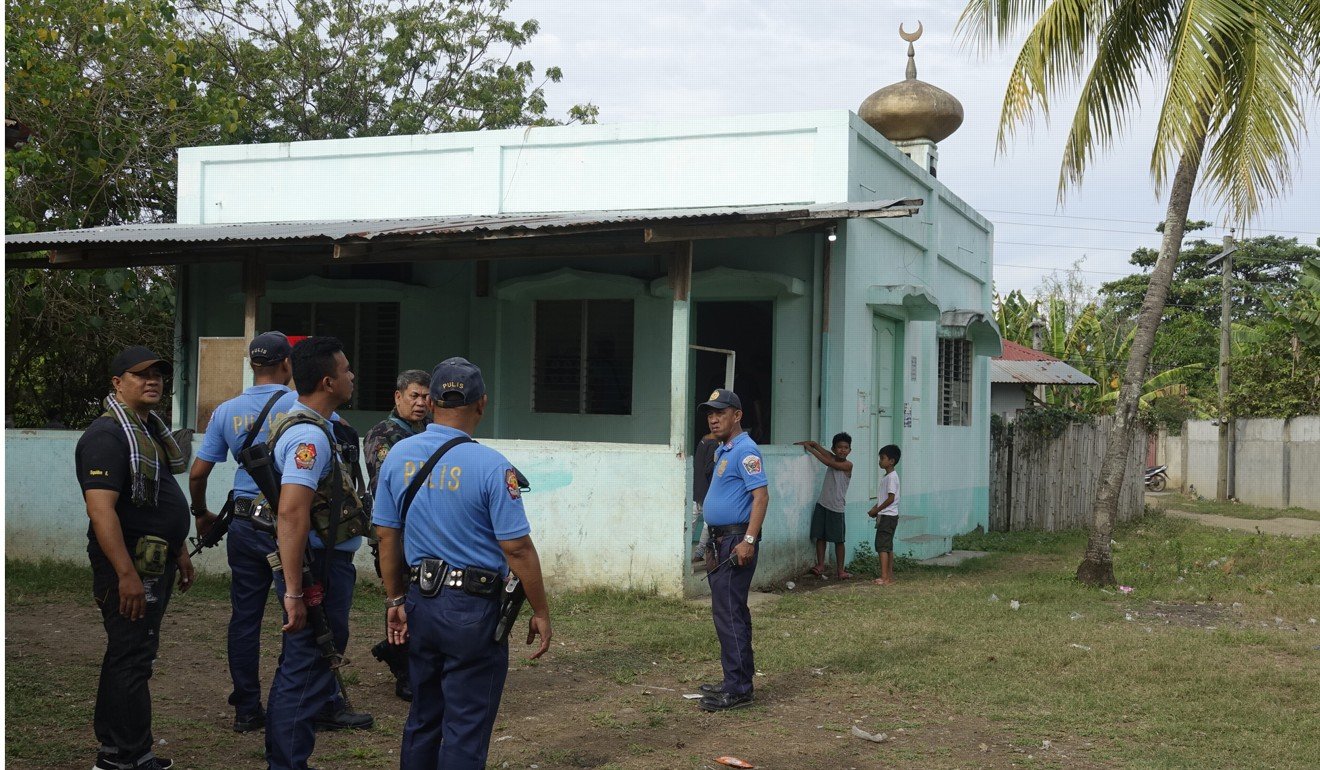
Philippines violence: two killed in grenade attack on Mindanao mosque
- The attacks have cast a shadow over voters’ decisive approval of giving Muslims in the south more control over their own affairs
- Authorities have urged unity among faiths as investigators hunt for a motive
The predawn explosion tore through the mosque in the island of Mindanao, home to the Philippines’ Muslim minority, as victims were sleeping. Four people were wounded in the attack.
The latest blast prompted worries of sectarian retaliation in the majority-Catholic Philippines, but the authorities urged unity across faiths as investigators hunted a motive.

The authorities warned against speculating the mosque attack was an act of revenge, saying there was no indication the incidents were related.
“We’re still looking at it, but we have not found any connection,” said Defence Secretary Delfin Lorenzana. “In the past when churches were bombed ... there were no revenge attacks.”
The authorities have not publicly identified any suspects. No one has claimed responsibility for the mosque attack.
Voters give a big ‘aye’ to Muslim self-rule in Philippines’ south
“Regardless of one’s faith (we) must resist becoming a victim of this vicious cycle of violence these terrorists are now attempting to create,” said Zia Alonto Adiong, a politician in the south of Philippines, on Twitter. “Let us not fall into their trap and give them the satisfaction of turning ourselves (Muslims & Christians) into enemies.”
The authorities are also hunting for those behind the cathedral assault, which security forces initially said was not a suicide bombing.

Lorenzana appeared to walk back the president’s comments on Wednesday, saying: “The final conclusion is not there yet. It’s still being investigated.”
The probe was zeroing in on a group tied to the notorious Islamist kidnap-for-ransom group Abu Sayyaf, which has pledged allegiance to Islamic State.
Police said they tried to arrest one of the suspects on Tuesday, but he got away and an armed man was shot dead by officers in the process.
The attacks have cast a shadow over hopes that a vote to give Muslims in the south more control over their own affairs would help quell long-running separatist violence.
‘French Spider-Man’ arrested after scaling 47-storey skyscraper in Manila
Rebels and the government in Manila have expressed hope the new so-called Bangsamoro area will finally draw the investment needed to pull the region out of the brutal poverty that makes it a hotspot for recruiting radicals.
However, hardline factions aligned with IS were not part of the decades-long peace process with the nation’s largest separatist group, the Moro Islamic Liberation Front, that culminated January 21 with the resounding approval of a new Muslim led-region in the south.
Jolo, which is home to hardline Islamist factions, is the only area in the southern Philippines that voted against the Bangsamoro.
The grenade attack on Wednesday drew immediate condemnation from authorities.
“There is no redeeming such blasphemous murder. It is the highest form of cowardice and obscenity to attack people who at prayer,” said regional leader Mujiv Hataman. “We call on people of all faiths ... to come together to pray for peace.”

.png?itok=arIb17P0)